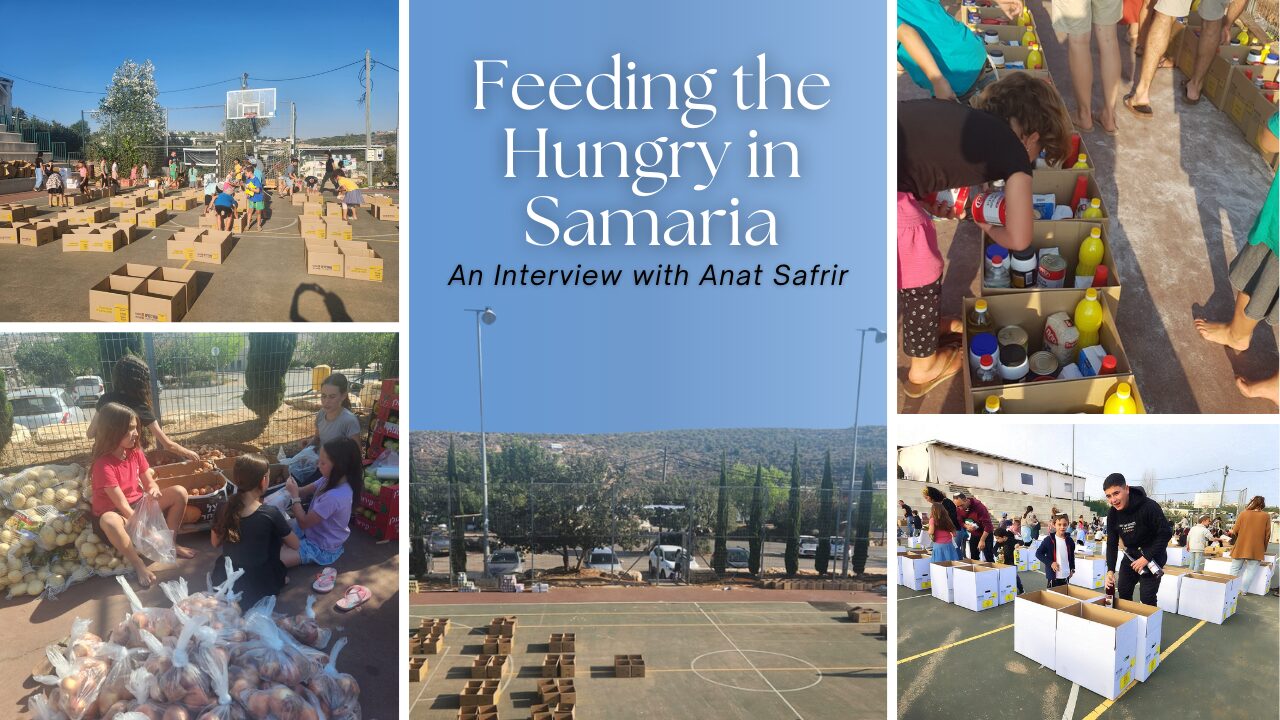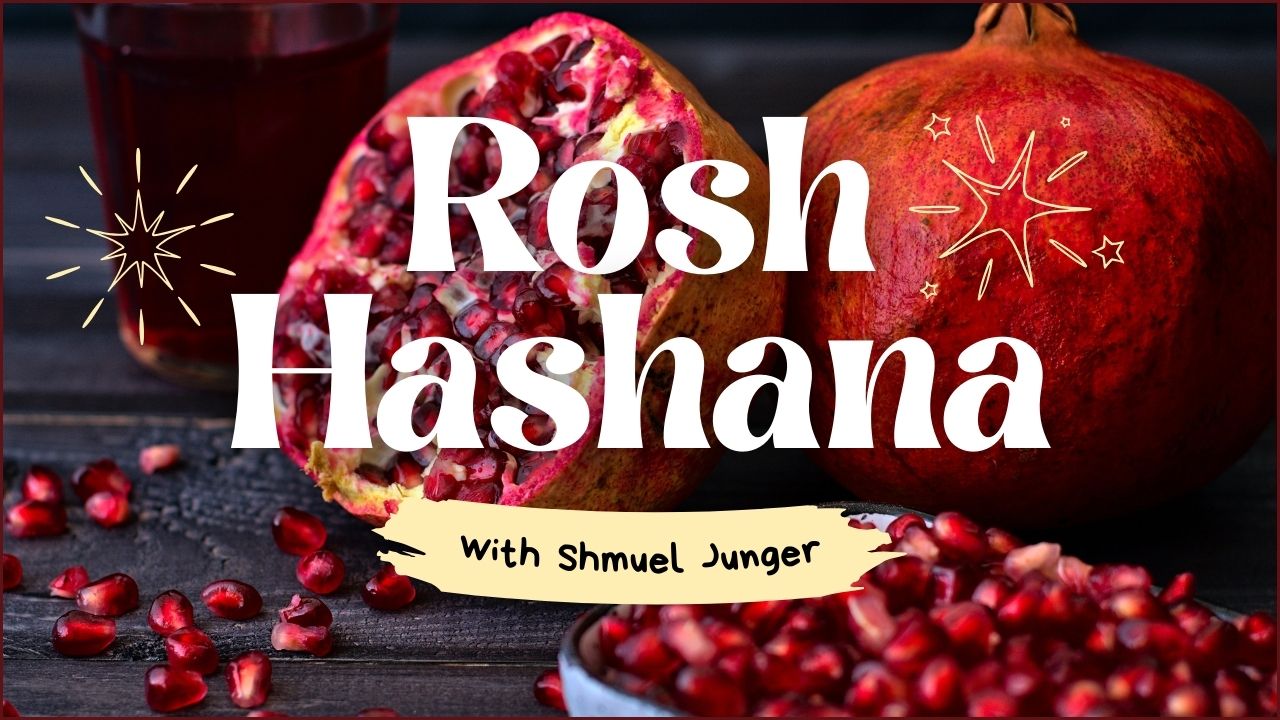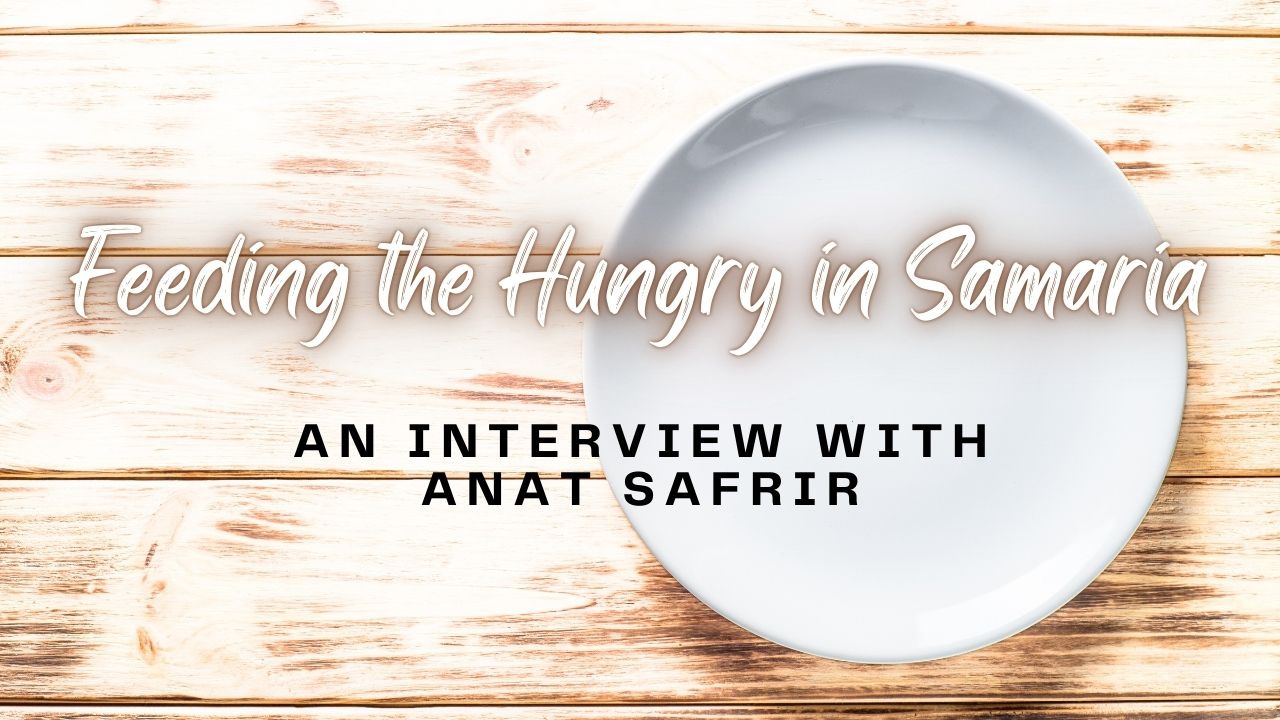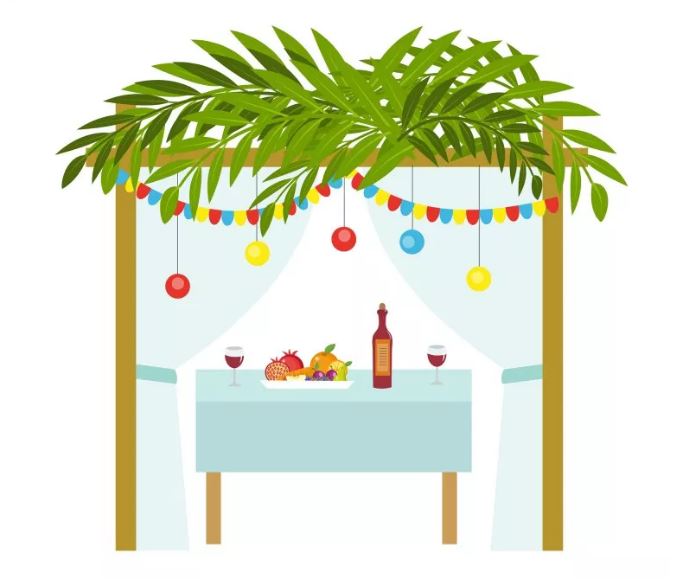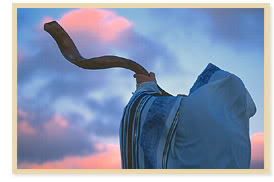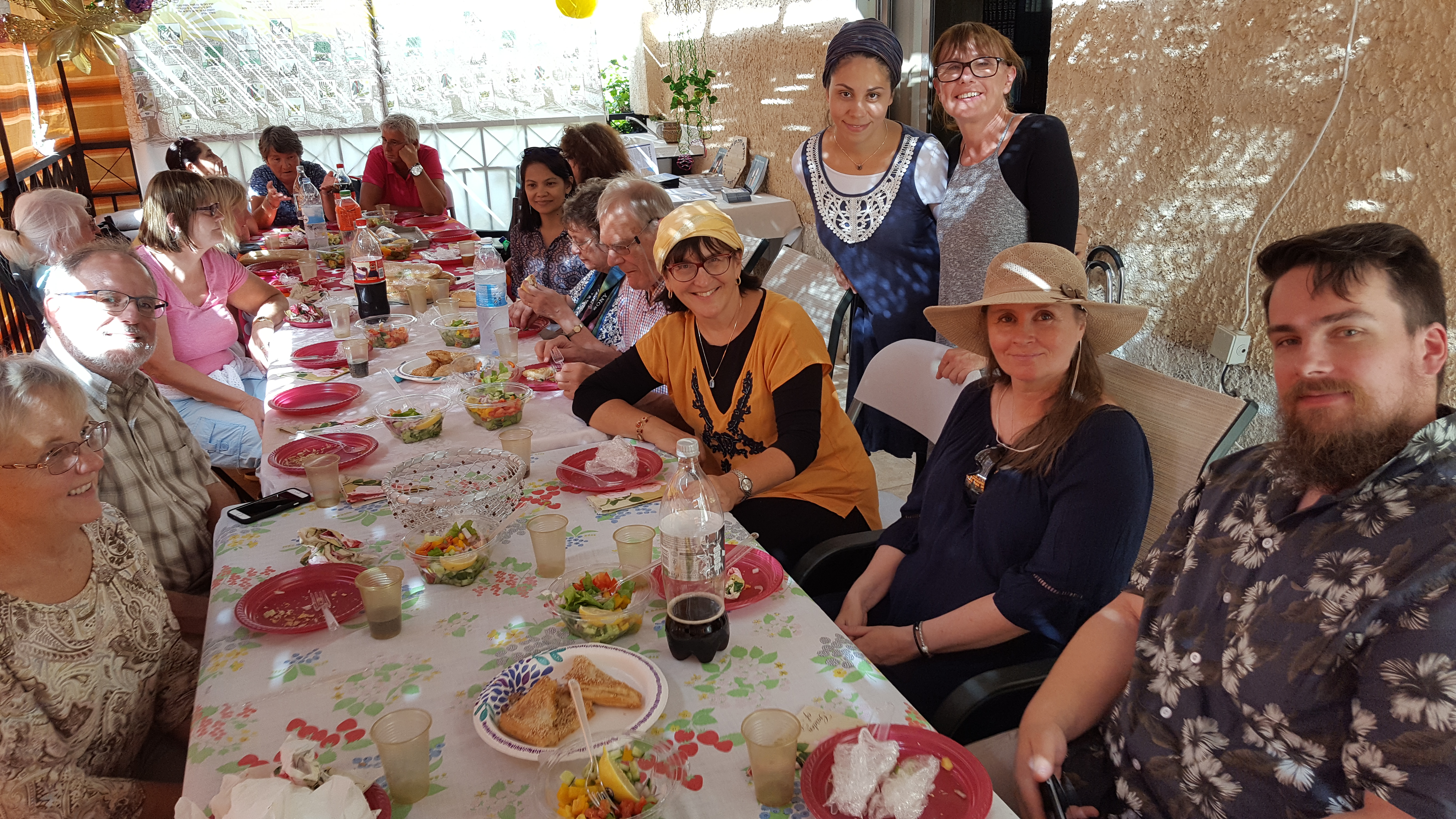Feeding the Hungry in Samaria: An Interview with Anat Safrir
As the holiday of Passover approaches our hearts and thoughts turn to our neighbors in Samaria. Many families are struggling to make ends meet as the war has interrupted employment and salaries and taken many fathers away from their families for long periods of time.

